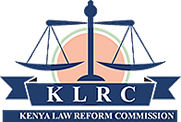1) The Bill of Rights applies to all law and binds all State organs and all persons.
(2) Every person shall enjoy the rights and fundamental freedoms in the Bill of Rights to the greatest extent consistent with the nature of the right or fundamental freedom.
(3) In applying a provision of the Bill of Rights, a court shall--
(a) develop the law to the extent that it does not give effect to a right or fundamental freedom; and
(b) adopt the interpretation that most favours the enforcement of a right or fundamental freedom.
(4) In interpreting the Bill of Rights, a court, tribunal or other authority shall promote--
(a) the values that underlie an open and democratic society based on human dignity, equality, equity and freedom; and
(b) the spirit, purport and objects of the Bill of Rights.
(5) In applying any right under Article 43, if the State claims that it does not have the resources to implement the right, a court, tribunal or other authority shall be guided by the following principles--
(a) it is the responsibility of the State to show that the resources are not available;
(b) in allocating resources, the State shall give priority to ensuring the widest possible enjoyment of the right or fundamental freedom having regard to prevailing circumstances, including the vulnerability of particular groups or individuals; and
(c) the court, tribunal or other authority may not interfere with a decision by a State organ concerning the allocation of available resources, solely on the basis that it would have reached a different conclusion.
